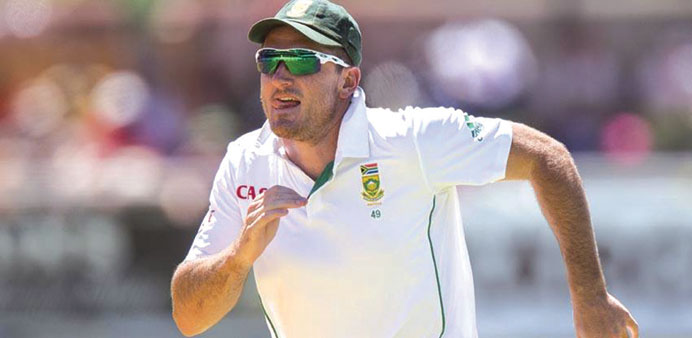By Vic Marks/The Guardian
The titbit that Graeme Smith is apparently contemplating coming out of retirement has no direct impact on England’s tour, but it tells us something: in South Africa they are even more perplexed than England about their opening batsmen.
Smith’s musings – that he might use the Masters Champions League to launch a comeback – will probably come to nothing. They conveniently highlight the Dubai venture, taking place between 28 January and 14 February, which is towards the end of England’s tour. The notion that a few runs against some creaking old superstars in a Twenty20 tournament unlocks the credentials for a comeback for South Africa against New Zealand next August is fanciful, to say the least. But the idea would surely never have surfaced if South Africa had been able to fill the hole left by Smith, who retired in March 2014 with 9,265 Test runs to his name.
The opening batsmen will have a crucial role in the series in South Africa, which begins in Durban on Boxing Day. The England players, having celebrated Christmas prematurely, will set off on Thursday. This series will provide a clear contrast to the ones both nations have recently experienced.
In India, where South Africa were defeated 3-0, and in the UAE, where England lost to Pakistan 2-0, opening the batting was, theoretically, a boon. It should have been easier to score runs at the top of the order before the spinners held sway – although the figures do not always reflect that. In South Africa it will all be rather different. There we anticipate a contest dominated by pace bowlers with a couple of spinners on hand to offer backup. Both sides will be more comfortable with these conditions.
The ball will swing and bounce far more readily than in Nagpur or Sharjah, which means that opening the batting will be a tricky proposition.
For South Africa the openers’ role is to keep their world-class batsmen, Hashim Amla and AB de Villiers, protected from the new ball for as long as possible. In the absence of a monumental figure like Smith this is likely to be a struggle.
The men in possession are Dean Elgar and Temba Bavuma. Elgar is a gritty 28-year-old left-hander, who has played 21 Tests averaging 34. He moved up the order since this was where the vacancy arose in the national team.
Bavuma, 25 years of age and 5ft 3in tall, is another converted opener, who shunned his aggressive instincts when scoring 34 from 117 balls in his last Test innings in Delhi (although his strike rate exceeded that of all the other batsmen in that remarkable, yet ultimately vain, blockathon).
The likely alternatives are about the same age as Smith but are lacking his vast reservoir of experience. Stephen Cook, 33 and son of Jimmy, and Andrew Puttick, 34, have impressive domestic records, but neither has ever played a Test match.
England have one banker at the top of the order. Alastair Cook, who has always opened the batting, has a record that is almost identical to Smith’s but he is not yet ready for the Masters Champions League. Who accompanies him has yet to be decided and this will remain the trickiest topic for the tour selectors.Cook has had more partners than Tony Curtis (not to be confused with Tim, who opened the batting for Worcestershire a couple decades ago).
This time two out of Alex Hales, Nick Compton and Gary Ballance will probably occupy the No2 and No3 position in the England team, with James Taylor likely to slot in at five. Hales is the favourite to start as Cook’s partner, though we will know more when England announce their lineup in Potchefstroom on 15 December, the venue for the first of two three-day warm-up matches.
He has been on the verge for a while and he offers an aggressive counterpoint to Cook. But there are doubts about his technique for Test cricket, which exist within the England camp as well as beyond. Hales is the bold choice and Trevor Bayliss’s inclination often seems to be a shrug of the shoulders followed by a laid-back “well, let’s find out”. Compton offers an alternative and, unlike Ballance, he has the advantage of being experienced as an opener as well as a No3.
There is the conundrum – unless Andrew Strauss contemplates coming out of retirement.

Graeme Smith
